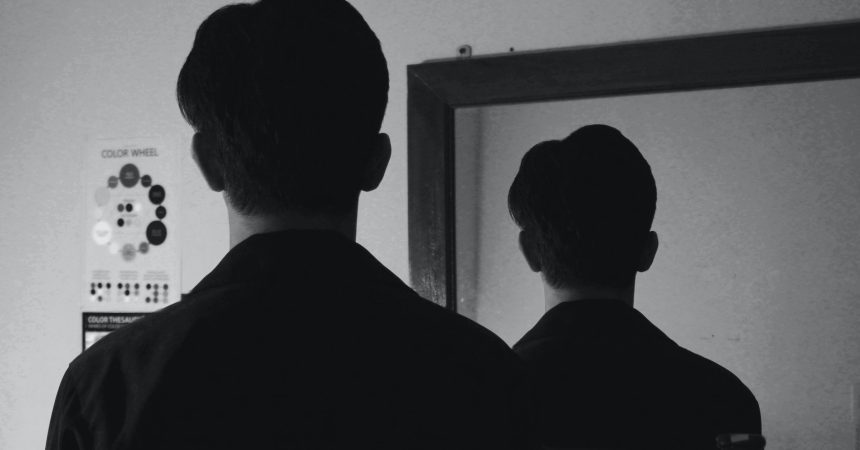Personality disorders are a group of mental illnesses in which an individual will have an unhealthy pattern of:
- Thinking
- Functioning
- Behaving
- Feeling
A person who has been diagnosed with a personality disorder will find it challenging to perceive and relate to everyday situations and people. According to the National Library of Medicine, approximately 80% of individuals with an antisocial personality disorder will begin showing symptoms by the age of 11. Mental health disorders, depending on the severity, can cause significant issues and limitations when it comes to:
- Relationships
- Work
- School
- Social activities
- Love interests
In many cases, individuals can go years without realizing that they have a personality disorder because they think how they behave and feel is entirely normal. Instead, the people closest to them will often get the blame when facing negative situations.
An individual’s personality is commonly influenced by their environment, life experiences, and inherited characteristics, with their personality generally staying with them for their entire life.
What are the ten personality disorders?
There are ten specific variations of personality disorders. Psychiatrists tend to use a system of diagnosis to identify the types. Many individuals diagnosed with one personality disorder may also show traits of at least one other personality disorder. These are then placed in the three categories:
Emotional and impulsive
Antisocial personality disorder:
Individuals who have antisocial personality disorder will show a pattern of complete disregard towards the boundaries or rights another person will set. Individuals who have antisocial personality disorder will often not conform to social norms. They will constantly lie or deceive people for no real reason. They are also known to act rather impulsively, putting others in dangerous situations.
Narcissistic personality disorder:
Individuals with a narcissistic trait will often put their own needs above everyone else, visually making themselves seem selfish. They wholly believe they are above everyone around them and should be treated as such. Further symptoms that individuals with a narcissistic personality disorder will exhibit:
- Expect constant praise
- Failure to recognize others needs and feelings
- Find themselves fantasizing about success, power, and being attractive
- Visibly envious of others when they are successful
- Exaggerate their talents and achievements
- Can come across as highly arrogant
Borderline personality disorder:
An individual who has been diagnosed with a borderline personality disorder will exhibit patterns of instability within interpersonal relationships. They will often have a poor self-image and be somewhat impulsive. An individual with BPD is known to go to extraordinary lengths to avoid being abandoned. Individuals may:
- Have incredibly intense emotions that can change relatively quickly
- They do not have a strong sense of who they are in life or what they want to get out of life
- Have regular strong suicidal thoughts
- Struggle to trust anyone no matter how long that has been in their life
Histrionic personality disorder:
Individuals who suffer from HPD display a pattern of excessive emotion and constant attention-seeking. They will become visibly uncomfortable when they aren’t the center of attention. They will open use their physical appearance to draw attention, whether that attention may come from a dangerous situation. Individuals who have been diagnosed with a histrionic personality disorder may:
- Feel the need to entertain individuals at all time
- Make irrational decisions daily
- Easily influenced by others, which can land them in dangerous situations
- Constantly seek or feel as though their entire self-worth is pinned on the approval of others
Suspicious
Schizotypal personality disorder:
Suppose a person has been medically diagnosed with a schizotypal personality disorder. In that case, they will often show patterns of being visibly uncomfortable when in a close intimidating relationship, which can lead to eccentric behavior and distorted thinking. This type of disorder can lead an individual to have delusional beliefs. They have superpowers which can quickly lead to the individual having grandiose thinking followed by a tense feeling when other people don’t share or understand the same views. Further symptoms can include:
- Severe suspicion and paranoia
- Will often only speak to the immediate family.
- Exhibits inappropriate emotional responses to other people
- Severe anxiety when around other people
Paranoid personality disorder:
Individuals with a paranoid personality disorder will exhibit signs of being constantly suspicious around other people or seeing them as a threat or spiteful. Individuals who suffer from PPD will often assume random people are always out to harm, deceive or knock them down in life. These individuals become fearful for daily activities such as a work team meeting, resulting in them becoming rather hostile to everyone around them.
Further symptoms can include:
- Constantly doubting the loyalty of friends and family members
- Holding grudges for years
- Finding it hard to relax and let go
- Become extremely defensive and argumentative at the drop of a pin
- Constantly overthinking
Schizoid personality disorder
People who suffer from SPD often visually display signs of being completely detached from any form of social relationship and expressing little to no emotion. Individuals with schizoid personality disorder generally will not seek to be in close, intimate relationships. These individuals will choose to isolate themselves; they do not care for attention or praise from family members, friends, or peers.
Further symptoms of schizoid personality disorder can include:
- Avoiding getting to know new people or developing relationships all together
- Become exhausted if they are forced into daily activities
- Lack of motivation in day to day like
- Not interested in any form of sexual activity
- Find it challenging to express any form of emotion
- Often has no one to talk to apart from immediate family members
Anxious
Dependent personality disorder:
People with a dependent personality disorder will often want to be babied and wholly taken care of; they are usually very submissive towards their partners. Individuals with DPD may find it challenging to make daily decisions without the reassurance of others. They will often feel helpless when alone and worry that they will not take care of themselves.
Further symptoms can include:
- Visually very clinging
- Completely overwhelmed with the fear of being abandoned
- Feel the need to please others constantly
- Being unable to make decisions without the reassurance of others
- The need to be looked after by other
- Wanting other people to take care of their primary responsibilities
Obsessive-compulsive personality disorder:
Individuals who have obsessive-compulsive personality disorder are often consumed by controlling everything, whether objects or people. Individuals will constantly completely obsess over minor details that the average person will not notice. This can often leave these personal feeling lonely as they do not allow themselves time for any social or leisure activities.
Further symptoms can include:
- An inability to have a flexible style
- Hoarding items that are otherwise useless or you no longer need
- Being completely fixated on ‘to-do’ lists
- Extreme attention to detail
- Neglecting family and friends
- Becoming completely infatuated with being perfect
Avoidant personality disorder:
Individuals will visually show signs of extreme shyness and sensitivity to criticism. People with APD will often be too scared or worried to get involved in social situations because they are completely overwhelmed with the fear of being rejected or criticized. They will often feel as though as they are not good enough or measure up to their peers. Further symptoms can include:
- Avoiding social interactions or contact with people completely
- Finding it difficult to make friends in new situations
- Unwilling to try or learn new things due to the fear of being made fun of
- Have an overwhelming fear of being constantly rejected, criticized, or ridiculed
Get in touch today
Personality disorders can completely wreck an individual’s life along with the lives of loved ones and friends. Personality disorders are known to cause severe issues in many aspects of an individual life.
If you have been diagnosed with one or more personality disorders, Shoreline Recovery Center will create you with a bespoke treatment plan to take the first steps to get the help you need. Our medical professionals are here to assist you with your dual diagnosis conditions.







